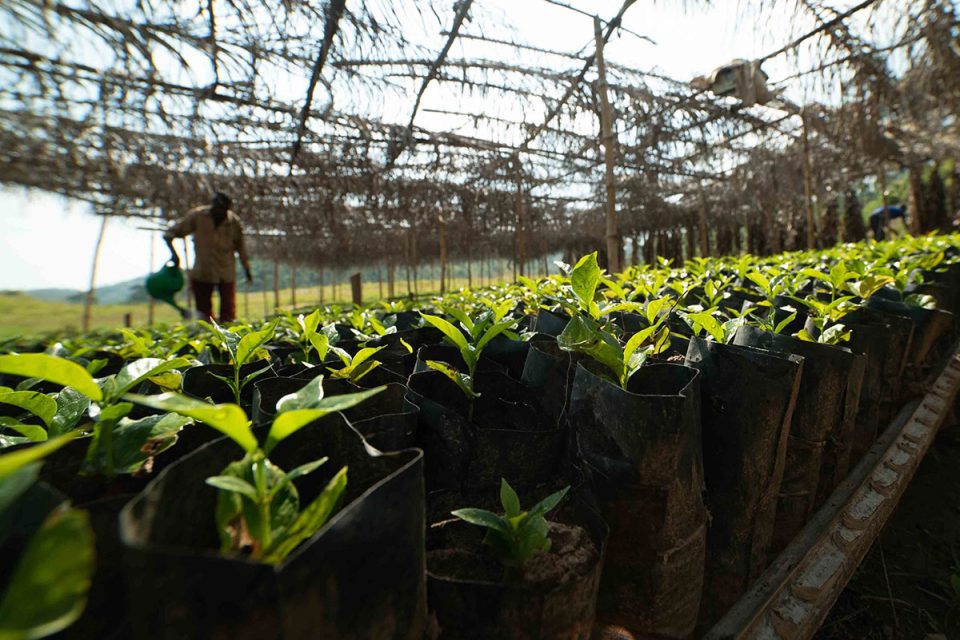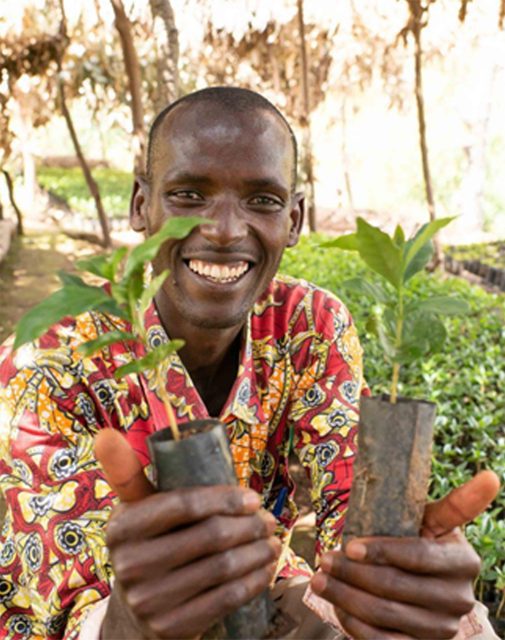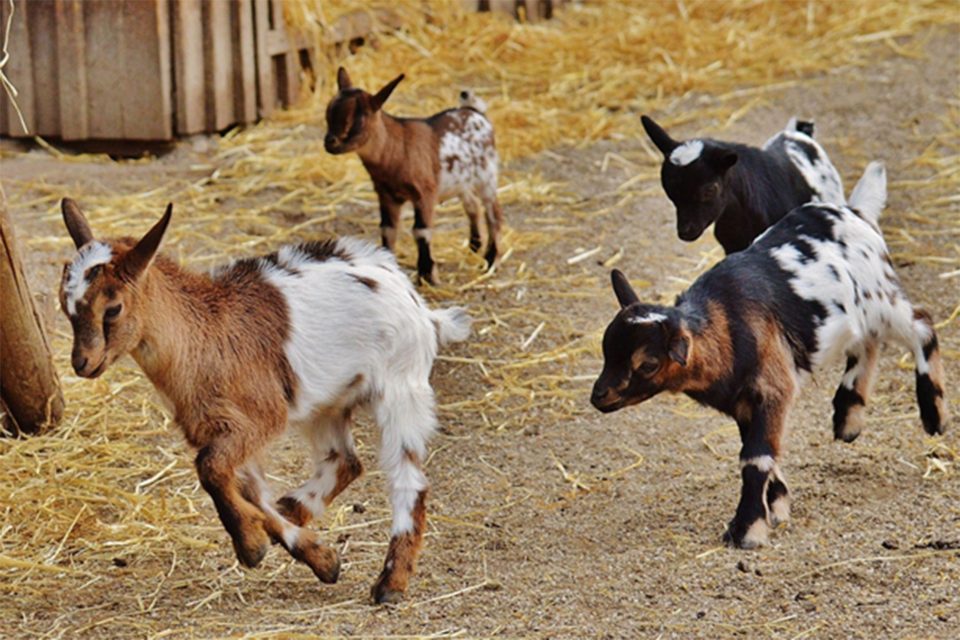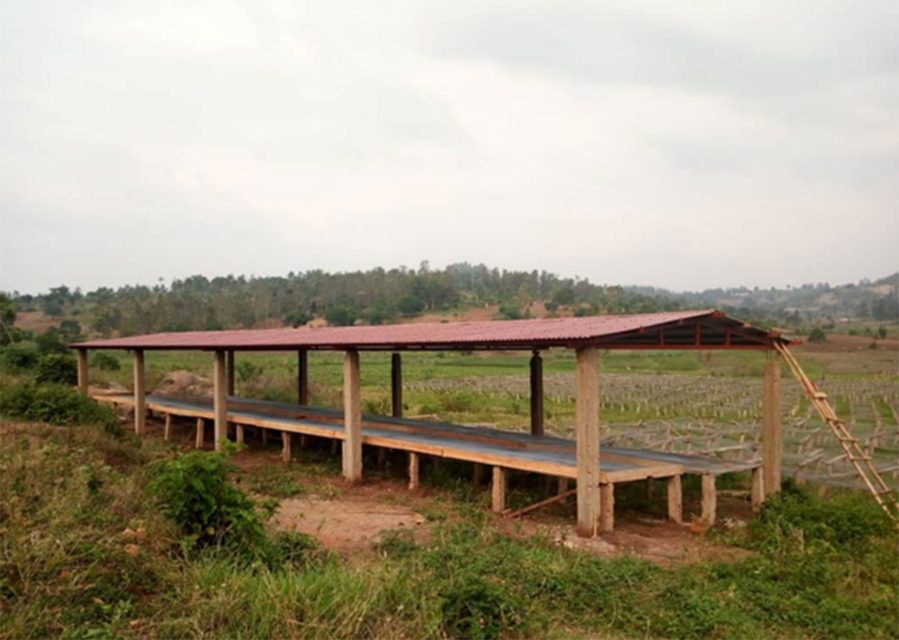New crop: Burundian coffee from the Akawa Project

Even though it’s only the 31st-largest coffee producer in the world, Burundi grows some outstanding coffee. Despite not being as well-known as its neighbours, it boasts good terroir and an ideal climate, largely thanks to its fertile volcanic soil and ample rainfall.
The country’s coffee harvest ends around August. From the beginning of December, we’re offering our roaster partners a range of Burundian coffees, which include some double washed, natural, and honey processed coffees.
Of particular note are the double washed coffees, which have an extraordinarily clean and bright flavour profile. This year’s comparatively low coffee harvest in Burundi makes them all the more special.
Our Burundian coffees are sourced from Akawa Project, an initiative that supports coffee farmers in the country to develop coffee production through sustainable methods. Read on to learn more about the coffees we’re offering, and the Akawa Project itself.
What is the Akawa Project?
The Akawa Project is a partnership between Condesa’s trade partner Supremo and the Société d’Usinage et de Commercialisation du Café du Mumirwa (SUCCAM). The project operates 12 washing stations in Burundi, which are used by about 6,000 smallholder farmers in the country.
The project was launched in 2015, and today, each of its 12 washing stations serves between 450 and 3,000 farmers. It began with several action-oriented goals, which included securing high-yield trees and hiring agronomists. It also sought to create a model farm and build a water treatment facility.
The Akawa Project also carried out a topography study across Burundi in the summer of 2021, which identified 20 key water sources near its washing stations. These outflows will undergo protection and sanitation. Once properly treated, they could provide access to safer and cleaner drinking water for some 1,175 households.
Today, several agronomists work with the Akawa Project to teach farmers about agricultural best practices such as mulching, weeding, and shade distribution.
One such agronomist is Bernard Kubwimana, who is based at the Runyinya washing station. Bernard joined the project in 2018. He explains that each of the leaders he trains will go on to teach another 40 farmers, sharing more knowledge. Bernard says that the region he covers, however, is in need of severe rejuvenation.
“Most of the coffee trees in the area I cover are very old,” he says in an interview with Supremo. “We need to explain to farmers why it is OK to remove old trees in order to plant new ones.”
The project’s agricultural achievements

As well as the aforementioned achievements, the Akawa Project also recently built a new plant nursery at the Kirasa washing station.
Intended as a pilot project for other washing stations, this nursery will have the capacity for some 200,000 seedlings. These will include a range of young, productive coffee plants, as well as fruits, vegetables, and other tree seedlings that can help farmers diversify their income and provide shade.
The two nursery beds will use shade nets to protect the plants from storms, which will ultimately reduce the need for maintenance. Across the project’s other washing stations, more nurseries are being constructed, with the hope that they will be ready by 2022.
Farmers at each station have also been given goats, which provide them with much-needed manure. Farmers have also been introduced to local veterinarians, so that they know who to go to if the animal falls ill. The plan is to give more goats to other farmers after the first batch of animals give birth.
Expanding to new washing stations


As part of the Akawa Project’s focus, it has expanded over the years to work with more washing stations. One of the most recent is Kiyonza Wet Mill.
Unlike the other stations, which are in the provinces of Bubanza, Rumonge, and Bururi, Kiyonza is located in the northeast of Burundi, in Kirundo Province. The Akawa Project has already established a demonstration plot at Kiyonza, which includes some young coffee trees in their first year of production.
Going forward, Kiyonza’s principal aim will be to offer farmers in the region a reliable place to sell their green coffee – as it currently stands, they would rely on mobile buyers to make money for their harvest.
The area around Kiyonza experiences much less rainfall and more sunshine than other parts of Burundi. This ultimately translates into coffee with a much brighter flavour and more acidity.
tIn spite of a low-volume year in the Burundian coffee sector, the Akawa Project continues to push forward with its work. The hopes are that the foundations laid now will lead to better coffee and better conditions for farmers in the years to come.
In the long term, the hope is that the Akawa Project can serve as a template for other similar projects in Burundi. In turn, the positive effects these social projects deliver for farmers can spread knowledge throughout their communities, improve market access, and create a better coffee industry for all.
From our side, we know that the Akawa Project supports Burundian producers to grow outstanding coffee, and we can’t wait to share these with you. For a closer look at the coffees we source through the Akawa Project, take a look at our offerings here.
